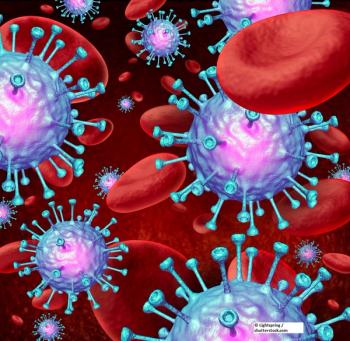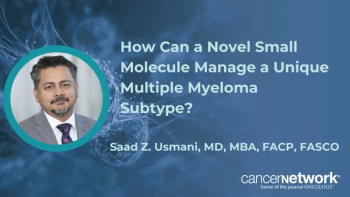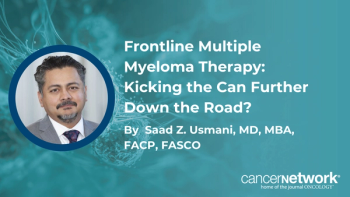
Oncology NEWS International
- Oncology NEWS International Vol 7 No 1
- Volume 7
- Issue 1
Patients Sought for Trial of Adoptive Immunotherapy
CHICAGO-Researchers from three midwestern centers are seeking patients with leukemia, lymphoma, or multiple myeloma who have relapsed after an allogeneic stem cell transplant for a new trial of adoptive immunotherapy.
CHICAGOResearchers from three midwestern centers are seeking patients with leukemia, lymphoma, or multiple myeloma who have relapsed after an allogeneic stem cell transplant for a new trial of adoptive immunotherapy.
The concept of the study is that lymphocyte infusions from the original donor may induce remission. However, this approach may also be complicated by graft-versus-host disease (GVHD).
The researchers will attempt remission induction by infusion of IL-2 activated lymphocytes transduced with the herpes simplex thymidine kinase (HSTK) gene. If severe GVHD occurs, the infused lymphocytes will be killed by adminis-tration of the prodrug ganciclovir (Cytogene).
Any patient with a hematologic malignancy that relapses after an allogeneic transplant is a candidate for the trial.
For referral of patients to the trial, please contact Richard Burt, MD (312-908-5400) or Ann Traynor, MD (312-908-1609) at Northwestern University Medical School, Chicago; William Drobyski, MD, or William Burns, MD, at the Medical College of Wisconsin, Milwaukee (414-257-5452); or Charles Link, MD, at the Human Gene Therapy Research Institute, Des Moines, Iowa (513-241-8790).
Articles in this issue
about 28 years ago
Interferon Improves Survival In CML: 10-Year Follow-upabout 28 years ago
Update on Breast Cancer Chemoprevention Trialsabout 28 years ago
Topotecan Plus Cytarabine Promising in MDSabout 28 years ago
Update of Letrozole Pivotal Trials in Advanced Breast Cancerabout 28 years ago
Arguments Against Mammograms for Age 40-49 Refutedabout 28 years ago
Proton Beam Therapy Appears Safer than Prostatectomy, X-raysabout 28 years ago
RT Effective Palliation for Malignant Melanomaabout 28 years ago
Metastatic Breast Cancer Responds to Docetaxel, Doxorubicin, Cytoxanabout 28 years ago
Prevention of Breast Cancer Begins With Public Health Education on RisksNewsletter
Stay up to date on recent advances in the multidisciplinary approach to cancer.





































